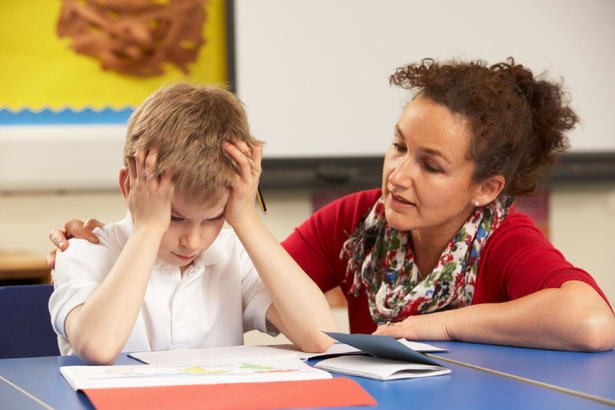
What Is Attention Deficit Hyperactivity Disorder [ADHD]

ADHD, which is also known as attention deficit hyperactivity disorder is a mental disorder among children and can progress well into adulthood. Children who have the disorder may be unable to control their impulses and can become hyperactive. They may encounter difficulties with paying attention. As such, their behavior can interfere with their lives in school and at home.
This problem is more prevalent in boys than in girls. Usually, it is discovered during the early years in school when the child begins to develop problems with paying attention.
Adults who suffer from ADHD could have trouble managing their time, holding on to a job, setting goals and organizing themselves. These problems would also affect their relationships, self-esteem, and lead them into addiction.
 Symptoms Of Attention Deficit Hyperactivity Disorder [ADHD] In Children
Symptoms Of Attention Deficit Hyperactivity Disorder [ADHD] In Children
 The symptoms of this disorder among children are categorized into three groups. They are:
The symptoms of this disorder among children are categorized into three groups. They are:
Inattention. A child who suffers from ADHD is distracted easily, does not follow instructions, and does not finish tasks. The child does not listen or pay attention and makes mistakes which seem careless. They can forget about daily activities and have problems with managing tasks. Also, they do not like activities that require them to remain sitting and they often misplace things. They also have a tendency to daydream.
Hyperactivity. The child displays a tendency not to be seated, fidgets, and bounces or squirms when they are seated. They have trouble playing quietly and are always moving (running and climbing). This is commonly described as restlessness in teenagers and adults. Children also display a marked preference for talking excessively and are always active and ready to move.
Insensitivity. Children with ADHD have trouble waiting for their turn and often blurt out responses while interrupting others.
 Symptoms Of ADHD In Adults
Symptoms Of ADHD In Adults
 Symptoms of ADHD among adults are different from those in children. They also evolve as the individual ages. The symptoms among adults include:
Symptoms of ADHD among adults are different from those in children. They also evolve as the individual ages. The symptoms among adults include:
- Anxiety.
- Problems at work.
- Impulsiveness.
- Unorganized.
- Anxiety.
- Low self-esteem.
- Trouble controlling their temper.
- Chronic boredom.
- Frustrated easily.
- A trouble with concentration when reading.
- Mood swings.
- Depression.
- Problems with relationships.
 What Causes Of ADHD
What Causes Of ADHD
Researchers believe that there are several causes for ADHD. However, the precise reason hasn’t been identified until this time. The causes attributed for ADHD may include any of the following:
- Heredity. ADHD has a tendency to run in families.
- Chemical imbalance. People with ADHD may have a chemical imbalance within their brains.
- Changes to the brain. Children with ADHD do not have control over the area of the brain that manages attention.
- Poor nutrition, smoking, drinking, substance abuse during pregnancy and infections can affect the brain of the baby during its development, resulting inADHD.
- Toxins such as lead can affect the development of a child’s brain.
- Injuries and disorders to the front of the brain —the frontal lobe— can create problems with controlling impulses and emotions.
Unlike it is commonly believed, sugar is not a cause of ADHD. Neither is poor home life, watching too much TV, food allergies, or a poor school.
The development of ADHD cannot be prevented. There is no cure available for the treatment. However, early detection and developing a good education and treatment plan can assist the victim to manage the symptoms effectively.
 The Treatment Developed For ADHD
The Treatment Developed For ADHD
As mentioned earlier, there is no treatment for ADHD. Therefore, the best option would be to manage the symptoms with medication and therapy. Some medications that can help in controlling hyperactive and impulsive behavior to increase attention span are definitely available. However, they don’t work with everyone. Children over six years will require medications that have been classified as non-stimulants.
Therapy sessions that focus on changing behavioral patterns can provide special education for children in school. Behavior modification teaches the child on how to replace bad behavior with good ones. Psychotherapy or counseling is also helpful for people with ADHD. It helps them to learn better ways of managing their frustrations and emotions. Counseling may also help family members develop a better understanding of the victim.
Many people with ADHD lead successful and happy lives because they seek treatment. Most importantly, they pay attention to the symptoms of ADHD and visits a physician regularly.
More in Mental Health
-
`
Hair & Makeup Designer Sarah Rubano Talks Turning Mia Goth Into Pearl
Transforming an actor into an unrecognizable character is no small feat, and Mia Goth’s Pearl makeup in the hit movie “Pearl”...
December 17, 2024 -
`
The Physical Signs of Hunger and How Mindful Eating Makes a Difference
Hunger is one of the most basic yet essential signals our body uses to communicate its need for energy. However, many...
December 15, 2024 -
`
Why Did Chris Pratt Call Anna Faris Before Proposing to Katherine?
Chris Pratt, the beloved star of “Guardians of the Galaxy,” made headlines when he revealed that he called his ex-wife, Anna...
December 3, 2024 -
`
6 Proven Tips to Tackle Insurance Claim Denials Successfully
Claim denials are a common hurdle for healthcare providers and professionals, even for those who follow the necessary procedures to avoid...
December 1, 2024 -
`
5 ‘Bad’ Fitness TikTok Trends You Shouldn’t Follow
TikTok has become a haven for creative fitness advice. But not all trends are worth your time or your health. From...
November 23, 2024 -
`
Does Drinking Water Affect Adrenal Hormones?
Drinking water is often seen as a simple way to stay hydrated, but it has deeper effects on our body than...
November 14, 2024 -
`
Why We Feel the Loss of Celebrities So Deeply?
Celebrity grief might sound strange at first. After all, most of us have never met these famous figures in person, yet...
November 5, 2024 -
`
Are High Deductible Insurance Plans as Ideal as They Appear to Be?
High deductible insurance plans have been a hot topic for years, especially as healthcare costs continue to rise. For many Americans,...
October 31, 2024 -
`
How Training Load Data Can Transform Your Exercise Routine
Tracking progress during workouts is challenging. Simple metrics like mileage or time don’t show the whole picture. Understanding the overall effort...
October 26, 2024















You must be logged in to post a comment Login